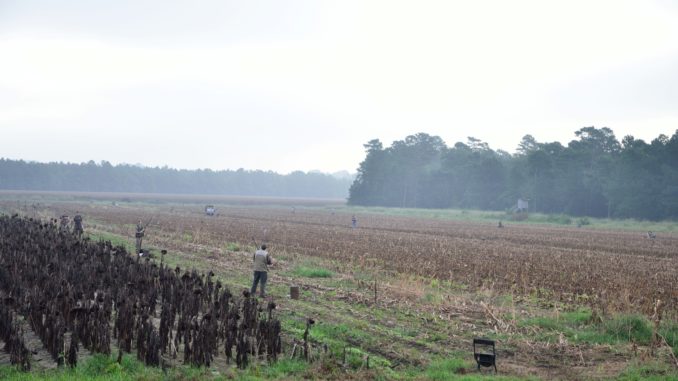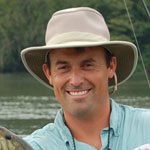
Shot-shell manufacturers expect a rise in profits when hundreds of thousands of shots are taken around corn fields. More than half the doves taken by hunters are killed in the first few weeks of the season, drastically reducing the number of birds available to make the migratory journey south. But the overwhelming crowd of hunters can have both a positive and negative effect on dove hunting.
Doves are not highly intelligent creatures, yet they can sense well enough to avoid hazardous situations — constant shotgun blasts prohibiting them from making it to the dinner table.
Hunting pressure will have a direct effect on the way doves utilize a food source; hunters can expect the second day to be less productive than the first.
Keith Taylor, huntmaster for Round Tree Hunt Club in Robeson County, recommends hunters leave a field alone at least a week after each hunt. If hunters want to hunt consecutive days, they must find different places.
On the flip side, hunting pressure can have beneficial effects. In fact, the best day to hunt is opening day — Labor Day — and then each Saturday afterwards. Beyond just having more birds available, the persistent shooting in feeding areas and travel corridors keep birds on the move, giving hunters a chance for a shot in many different areas around the region.
On a smaller scale, hunting pressure on the same field is almost a necessity for an active dove hunt. Adequate hunters are required to cover a field and prevent doves from setting down to feed.
Taylor picks and chooses fields to hunt based on the number of hunters that he has on hunting days.
“You need around 50 people to cover a 100-acre field,” he said. “A field is only too big when you don’t have enough people to keep the birds moving.”




Be the first to comment